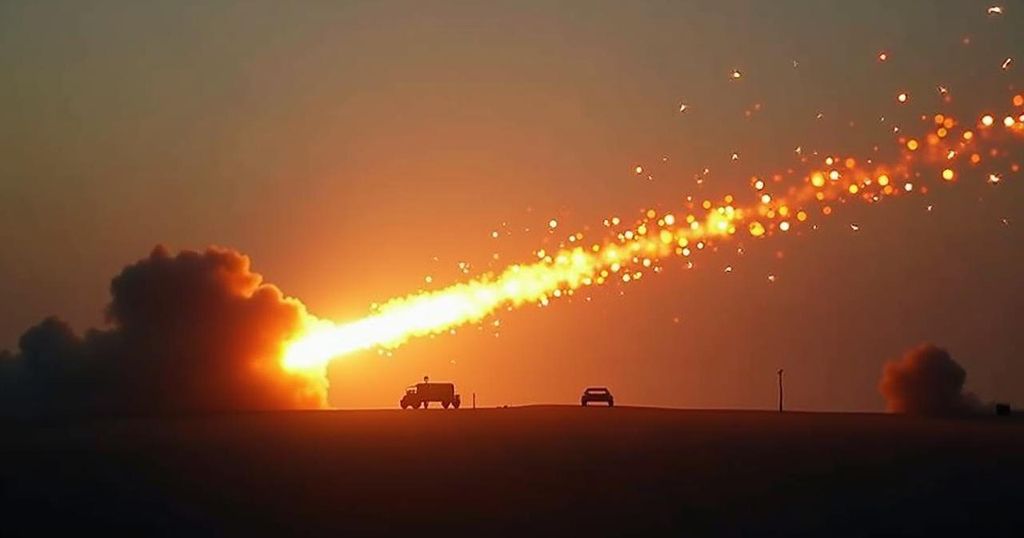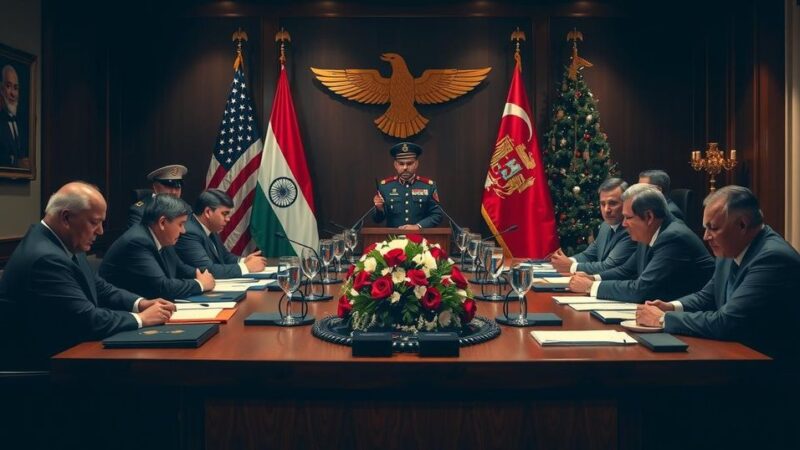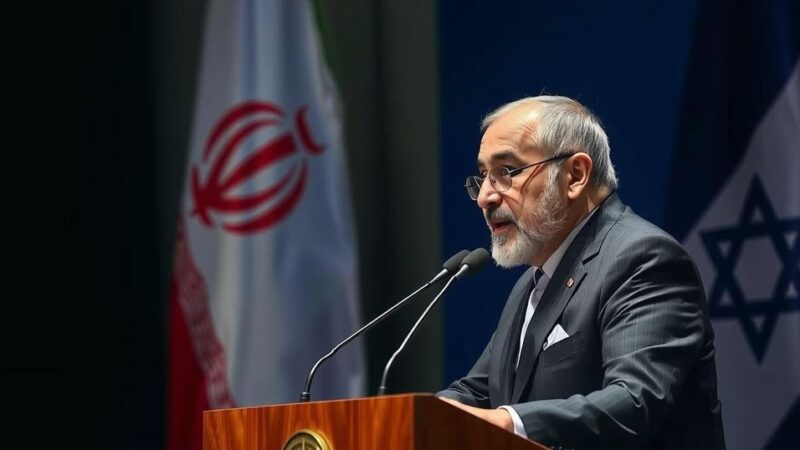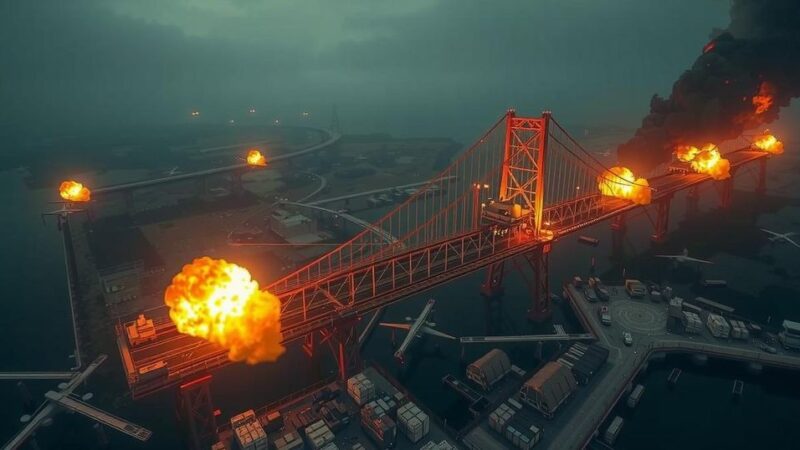Iran has reportedly launched numerous ballistic missiles at Israel, claiming the attack is retaliation for the recent deaths of key militant leaders. The Israeli military has urged citizens to take shelter, and the United States has expressed readiness to support Israel. This incident further escalates tensions in a region already fraught with conflict.
On a significant day marked by escalating tensions, Iran’s Islamic Revolutionary Guard Corps (IRGC) has launched numerous ballistic missiles aimed at Israel. According to The Washington Post, three unnamed Pentagon officials clarified that this missile strike did not target American troops stationed in the Middle East. In previous instances, armed groups connected to Iran have directed rocket attacks towards American military bases situated in Iraq and Syria. Al Jazeera, reporting from Jordan due to restrictions imposed by the Israeli government, noted that the missiles were fired from Iranian territory and traversed the skies above Amman, producing numerous audible explosions in the vicinity. Following the missile launch, the Israeli army urged its citizens to remain vigilant and seek shelter, indicating that the situation remains fluid. Multiple missile salvos have been observed, impacting areas such as Tel Aviv and occupied East Jerusalem, with accompanying sirens also reported in Jordan. Throughout the day, Israeli authorities had anticipated a potential attack, but the timing caught them off guard. In response to the attacks, Israel’s security cabinet convened in a secure location within West Jerusalem to address the situation. The IRGC claimed the missile offensive is retribution for the recent assassinations of key figures, including Hezbollah leader Hassan Nasrallah and Hamas chief Ismail Haniyeh. In a statement, they asserted that their action was a legitimate reaction to perceived aggression against Iranian nationals and sovereignty. Iran’s mission to the United Nations declared the missile assault concluded and cautioned the Israeli government against any retaliatory measures. Meanwhile, Jordan’s state news agency reported a temporary suspension of air traffic in response to the situation, while Ben Gurion International Airport in Israel halted all operations. The Israeli military has advised citizens to remain in secure shelters until further notice, emphasizing that explosions were due to interception efforts or missile impacts. Reports emerged of further missile activity crossing over Jordan, leading to visible interceptions and resulting in loud explosions. Israel’s far-right finance minister commented on social media, stating that Iran would face repercussions similar to those encountered by Gaza and Hezbollah. Residents in Tel Aviv, including Akiva Eldar, recounted ongoing air raid sirens, reinforcing the precarious nature of their security amid ongoing hostilities. United States President Joe Biden assured the readiness of the United States to assist Israel in defending itself against these Iranian missile attacks and emphasized the protection of American military personnel in the region. He affirmed this support following a meeting with Vice President Kamala Harris and the White House national security team.
The recent missile attacks from Iran towards Israel exemplify the heightened state of conflict in the region, directly tied to significant geopolitical incidents. The IRGC’s missile launch is reported to be a response to the killings of influential leaders from opposing groups, aiming to demonstrate Iran’s military capacity and resolve. This act of aggression raises concerns about regional stability, the safety of American personnel, and the potential for escalated military engagements. The complex interplay between Iran, Hezbollah, Hamas, and Israel reflects longstanding tensions dating back decades, often culminating in violent confrontations that have implications beyond the immediate conflict, affecting neighboring countries and international relations.
In summary, the missile attack launched by Iran at Israel signifies a critical escalation in ongoing hostilities, attributed to recent high-profile assassinations. The situation remains precarious as both nations prepare for potential retaliatory measures. With the United States affirming its commitment to support Israel, the ongoing tensions underscore the complexities of Middle Eastern geopolitics and the importance of international diplomatic efforts to mitigate conflict.
Original Source: www.aljazeera.com






